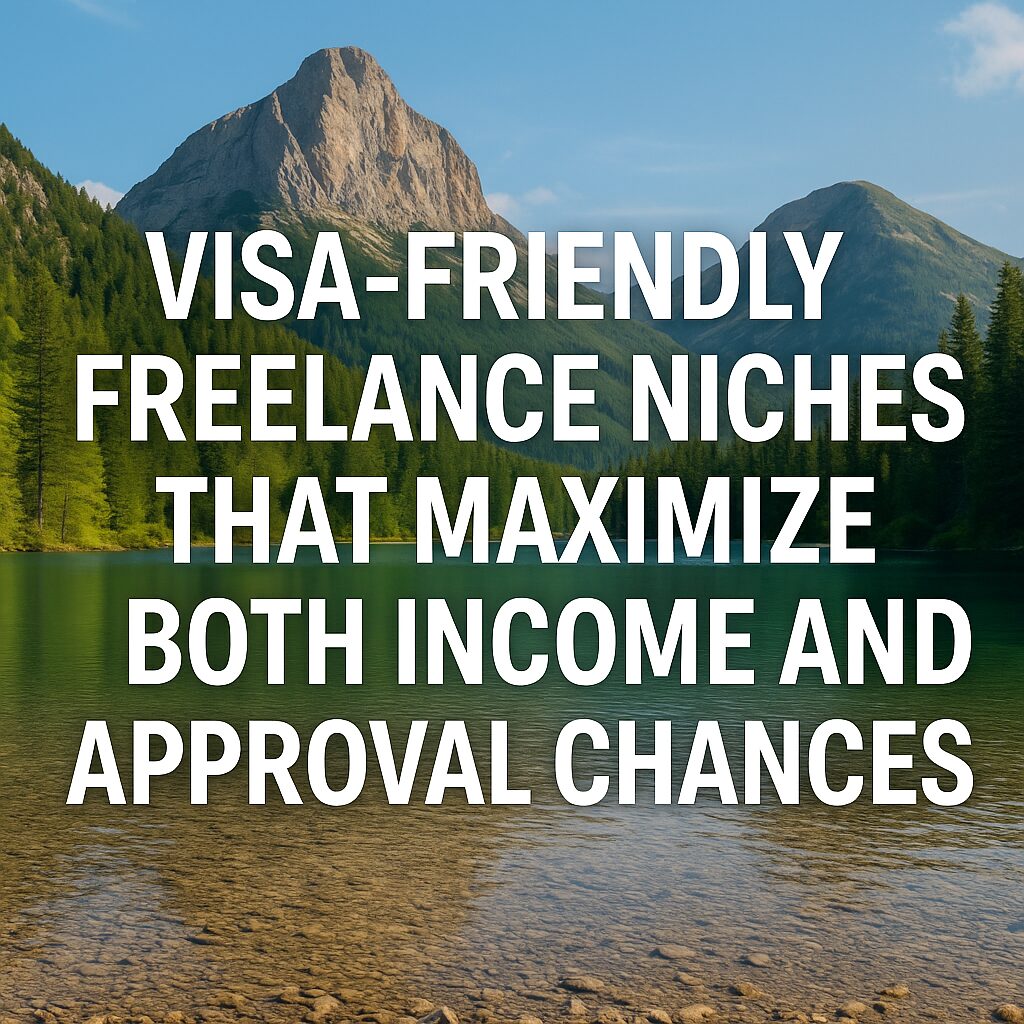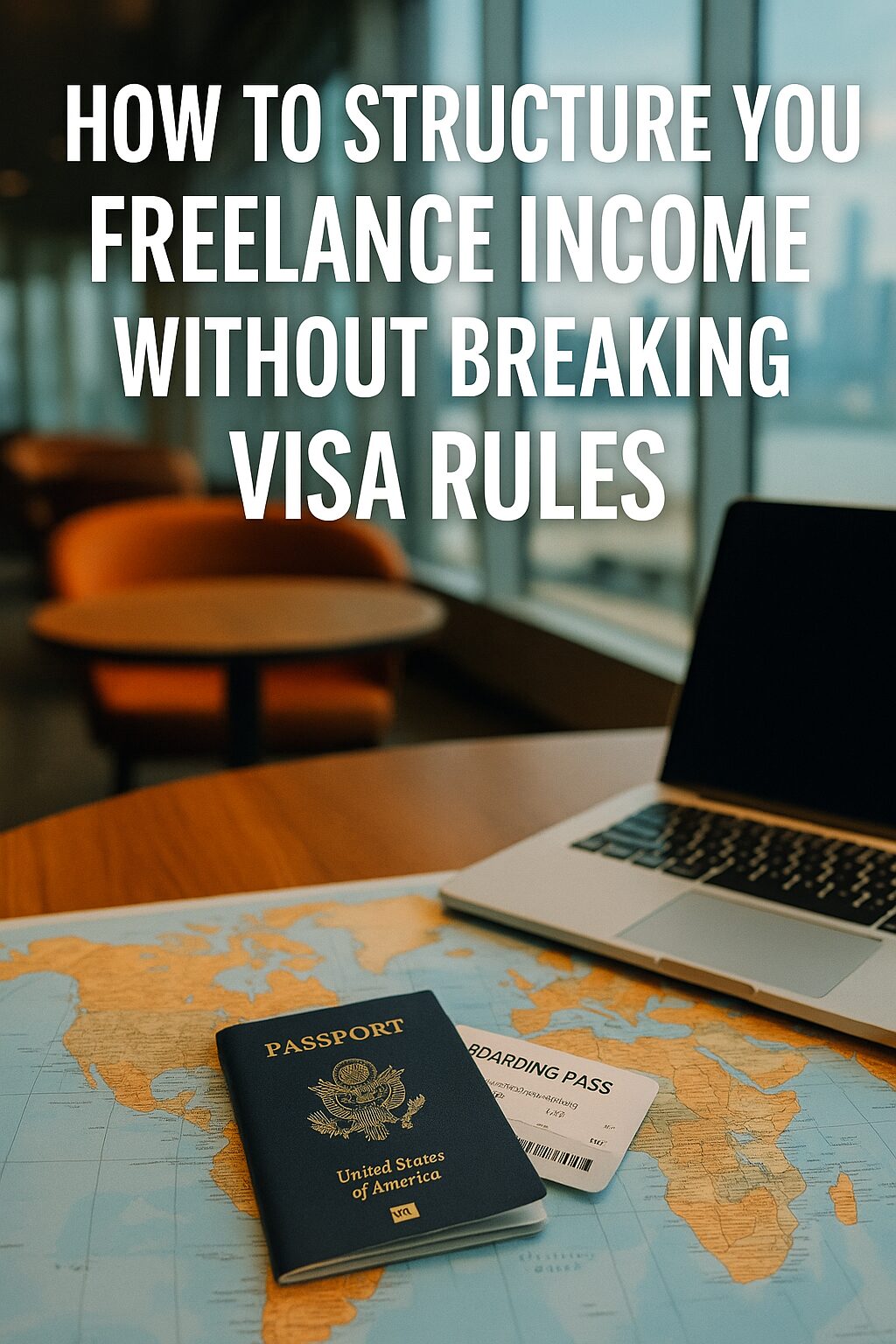Can your freelance job help you get a visa—or even a green card?
If you’re a digital nomad, a remote worker, or an international freelancer, this question could shape your future.
Not all freelance work is equal in the eyes of immigration officials.
Some freelance niches align closely with visa criteria, while others may be seen as “low skill” or “non-essential.”
In this post, we’ll break down the freelance careers that not only generate reliable income but also boost your chances of getting approved for immigration or work visas, especially for the U.S., Canada, UK, Australia, and similar destinations.
Why Your Niche Matters in Immigration
Immigration officials don’t just ask: “Do you have income?”
They ask:
- Is your work high-value?
- Does it require specialized skills?
- Can it be seen as a national interest?
- Is it documentable with contracts, clients, media, or results?
Freelancers in strategic niches can demonstrate economic contribution, innovation, and global demand—making it much easier to qualify for visas like O-1, E-2, or EB-2 NIW.
1. Data Science & AI Consulting
Data is the new oil—and immigration officers know it.
If you provide freelance data analytics, AI model development, or machine learning consulting, your skills are seen as:
- High-income
- High-impact
- Highly exportable
Why it’s visa-friendly:
- Fits STEM classifications (EB-2 NIW, Canada Express Entry, Australia Priority List)
- Public demand for AI work is global
- Evidence can be provided through GitHub, Kaggle, portfolios, or research papers
Bonus: U.S. immigration views AI-related consulting as valuable to national competitiveness.
2. UX/UI Design with Recognized Portfolio
UX/UI designers aren’t just creatives—they’re problem-solvers for the digital economy.
With a strong portfolio, freelance designers can prove:
- Economic value through conversion improvement
- Thought leadership in the tech space
- Innovation in product design
Why it works for immigration:
- U.S. O-1: Creatives with exceptional skill can qualify
- UK Global Talent Visa: Design portfolios are accepted
- EB-2 NIW: Digital design affecting public accessibility (e.g., health, education platforms)
Evidence to include: case studies, client reviews, award mentions, media coverage.
3. Technical Writing in STEM Fields
Freelancers who write white papers, documentation, grant proposals, or user guides in scientific or technical fields have a major advantage.
Why? Because this work:
- Shows high-level understanding
- Serves public or corporate institutions
- Is critical to economic sectors
Visa Edge:
- U.S. EB-2 NIW: Supports public communication in STEM
- Canada PR: Education + occupation match
- O-1 Visa: Writers with published work in recognized outlets
Tip: Publish in tech blogs, journals, or company case studies—and document everything.
4. Immigration & Legal Consultancy (Licensed Only)
If you’re licensed in any country to provide legal or immigration services, you’re in a high-trust niche.
Even if you freelance, your work supports individuals or businesses crossing borders—something immigration programs appreciate.
Best use cases:
- E-2 Visa: Open a consultancy as your business
- EB-2 NIW: Serve immigrant communities
- O-1: Legal thought leadership or publication track
Warning: Unlicensed legal advising is illegal and can harm your own visa case.
5. Health Tech Content Creation
Combining healthcare expertise with media and writing opens powerful doors.
Examples:
- Writing for global health organizations
- Producing wellness or accessibility content
- Creating public health education materials
Why it’s immigration gold:
- EB-2 NIW: Public health impact
- O-1: Creative + educational impact
- Canada/UK PR: Health sectors are priority pathways
What to show: audience reach, platform stats, partnerships, measurable impact
Bonus: How to Package Your Freelance Niche for Visa Success
Whatever your niche is—how you present it matters.
Use these tools to support your case:
- Contracts & invoices
- Client testimonials
- Portfolio or GitHub
- Press or media links
- Tax filings or 1099s
- Awards or grants
- Peer-reviewed work or speaking invitations
What to Avoid
Some freelance niches tend to raise red flags in immigration processes:
- Unlicensed coaching or therapy
- OnlyFans or adult platforms
- Crypto or NFT speculation with no clear clients
- Anonymous freelance gigs with no documentation
These may be legitimate work—but they’re difficult to explain or prove legally.
Final Thoughts
Freelancing doesn’t have to hurt your visa case.
In fact, the right freelance niche can make your case stronger.
Choose work that’s:
- High-skill
- High-value
- Easy to document
- Aligned with national or economic priorities
With the right positioning, you can turn your freelance job into your immigration strategy.

